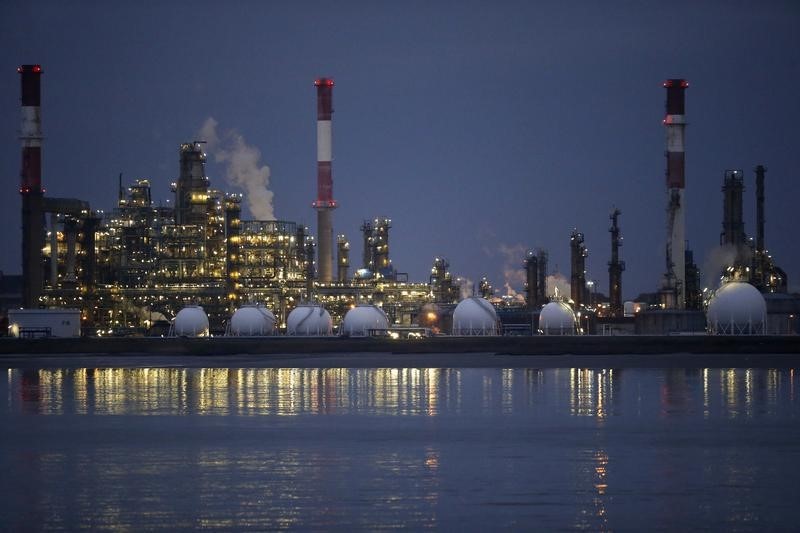Oil rally pauses as Fed minutes loom, China-U.S. tensions rise
2023.07.04 21:37

© Reuters.
Investing.com– Oil prices were flat in Asian trade on Wednesday as traders sought more cues on monetary policy from the minutes of the Federal Reserve’s June meeting, while fears of a renewed U.S.-China trade war also dented sentiment.
The start of a two-day meeting of the Organization of Petroleum Exporting Countries with major oil industry executives also saw markets holding their breath, especially after Saudi Arabia and Russia vowed deeper supply cuts in the coming months.
The prospect of tighter supplies boosted oil prices this week, as a 1 million barrels per day production cut by Saudi Arabia came into effect from July. The world’s largest oil exporter vowed to extend said cut until end-August, and potentially later.
But fears of worsening economic growth, amid rising interest rates and a potential U.S.-China trade standoff, kept oil gains in check.
fell 0.1% to $76.02 a barrel, while steadied at $71.08 a barrel by 21:31 (01:31 GMT). Both contracts rallied about 2% on Tuesday, albeit in thin trade on account of a U.S. holiday.
Rate hike fears increase ahead of Fed minutes
Oil markets were now squarely focused on the , due later on Wednesday.
The central bank had held rates steady in June, but vowed at least two more hikes this year, given that inflation remains well above the Fed’s annual target.
Fed Chair Jerome Powell had also reiterated the plan for more hikes, which in turn pressured oil markets with the prospect of tighter monetary conditions and worsening economic growth.
Markets are now the Fed will hike rates by 25 basis points in late-July.
The prospect of higher rates has weighed heavily on oil prices this year, as markets feared that an economic slowdown caused by higher rates would dent oil demand later in the year.
U.S.-China trade war fears dent sentiment
China had this week imposed curbs on the export of certain key chipmaking materials to the U.S., potentially marking an escalation in an ongoing trade war between the world’s largest economies.
The move ramped up concerns over more disruptions in global supply chains, which could in turn impact an already fragile global economy. It also pointed to more economic pressure on major crude importer China, which is struggling to shore up growth after three years of strict COVID lockdowns.
Recent economic data from China pointed to worsening conditions in the world’s largest crude importer, largely undermining bets that China will drive oil demand to record highs this year.
A potential escalation in a Sino-U.S. trade war adds to the uncertainty surrounding the Chinese economy.








